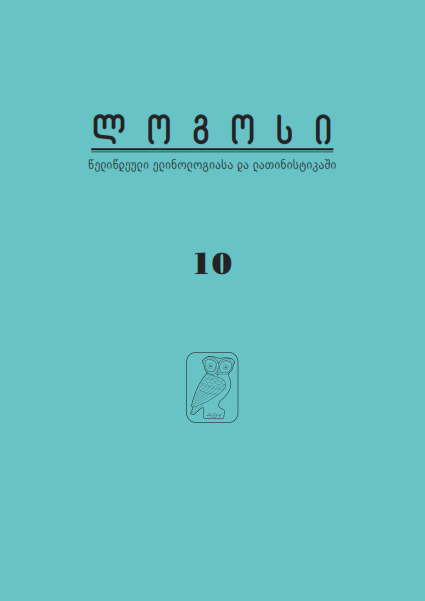Significare - არისტოტელეს აღნიშვნის თეორია ბოეციუსის კომენტარებში
საკვანძო სიტყვები:
ლოგიკა, ენა, არისტოტელე, ბოეციუსიანოტაცია
The purpose of this article is to analyze the theory of signification, which is presented in the first chapter of Aristotle's treatise "On Interpretation" (Peri Hermeneias). More specifically, the main interest of the paper is the problem of the reception of this theory in the commentaries of Boethius. While commenting on five lines of the first chapter of Aristotle's treatise, Boethius develops a theory of signification which, according to some modern scholars, lays the foundation for a "psychological" interpretation of language. Within the "psychological" view of language, two aspects are highlighted by theoreticians: 1. Boethius's novel model of understanding of Aristotle's semantic triangle, in which spoken words primarily signify affections of the soul or (mental experiences) [passiones animae] and only secondarily, through their mediation, things; 2. A certain resemblance between the Boethian-Medieval scheme of "signification" and the modern concept of "meaning." In this paper, I try to show that: 1. If what is primarily signified by words are mental experiences, this does not mean that words do not signify things in any way, but rather that they (things) are objects of secondary signification. 2. The similarities between the Boethian notion of signification and the modern (derived from Frege) concept of' “meaning” are overestimated. In Frege's case, the grammatical and psychological aspects of language, in the study of logic, are less fruitful for he demands from logic a rather strict verifiability.









